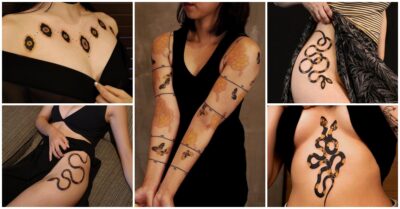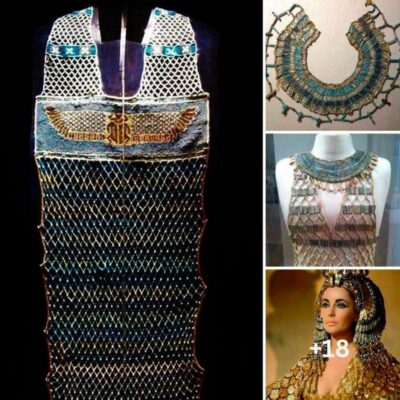It depends what your tattoo ink is: Is it a vaccine or a drug?
Tattoos in the past used to receive a lot of prejudice. It used to be one of the signs to identify criminals, outlaws. At one time, tattoos became fashionable in the rock and hip-hop community. Tattoo at that time was the declaration of young people for a strong and personal lifestyle.
But in the past 5 years, tattoo has been popularized to all classes and ages in society. As people show more skin, they also like to decorate their bodies with more artistic drawings.
Even children love tattoos, and are given temporary tattoo stickers by their parents.

Things really don’t stop there. Doctors and biochemical engineers are now also looking to take tattoos to the next level, in a field they call ” medical tattoo ” or medical tattoo.
Many researchers have wondered: Can tattoos help us cure diseases?
Replace needles with tattoo needles
That’s the idea of Idera Lawal, a biochemical engineer who specializes in fluid dynamics and needle-free subcutaneous injection methods at the University of Texas in the United States.
Lawal says when you get a tattoo, the tattoo needles pierce your skin at a rate of 200 times per second. And contrary to what many people think that tattoo needles inject ink into the skin like a vaccine needle, the mechanism of action of these two needles is completely different.
First, the medical needle is empty, and the tattoo needle is not. The mechanism of action of medical needles is based on positive pressure. The doctor or nurse will push a hollow needle through your skin, then press on the plunger of the syringe and force the liquid medicine into your body. The whole process, the needle is completely stationary.
Tattoo needles are different, they are completely solid and are only dipped in ink on the outside. The tattoo needle pierces your skin repeatedly. Every time it is pressed down on the skin and pulled up, it leaves a void about 2mm deep. The ink then flows into this pore on its own without the need for positive pressure.
Lawal recorded a slowmotion video demonstrating the effect, it was the vacuum in the opening of the tattoo needle that drew the ink down there, not the pressure. And he says the effect could be used to deliver drugs and vaccines more efficiently than medical needles, in some cases.
” Over the past decade, several studies have shown the promise of using tattoo needles as an intradermal drug delivery technique. However, there is still a lack of understanding of the fluid dynamics involved. to the delivery of fluid into the skin ,” Lawal writes in a new report at the American Physical Society conference.
“Based on our observations, we hypothesize a distribution mechanism based on capillary infiltration .”
Storing drugs or vaccines in the skin, allowing them to seep into the capillaries is a slow and delicate delivery strategy. In some cases, conventional medical needles won’t work, Lawal said.
With DNA vaccines, for example, they are often too large and can have difficulty passing through a standard needle. Lawal thought it would be better to get this vaccine tattooed instead of injecting it.

And the cases can only tattoo
A good example can be mentioned is Leishmania disease. This is a parasitic infection from mosquitoes, which manifests as skin sores that do not heal. There are about 12 million Leishmania patients in the world, but the treatment measures for this disease have not proved effective.
Although researchers have found a drug that inhibits and kills the Leishmania parasite, its distribution is still an impasse. If applied only to the skin, this medicine will not be absorbed effectively in many cases.
If injected directly into the lesion, it will be painful and the patient has to repeat injections many times. In addition, injectable anti-Leishmania drugs cannot be used in cases of ulcerative lesions of the lymph nodes or perichondral lesions.
Against this backdrop, Marina Temi Shio, a researcher in the Department of Microbiology and Immunology at the McGill University Medical Center, suggested that anti-Leishmania drugs should be applied to the lesion, much like a tattoo.
” Tattooing is a powerful, easy-to-use, completely hygienic interventional procedure that has been developed and refined by the cosmetic industry over decades ,” Shio and team wrote in the journal Scientific Reports.

In the reported trial, they successfully treated mice infected with Leishmania with tattooing. By being delivered directly by the tattoo needle into the dermis, the drug was absorbed more effectively than the topical form.
Meanwhile, with a long storage time, the mice also did not have to re-inject many times and save the dose from 6-16 times compared to the technique of injecting with a medical needle into the peritoneal area.
“The idea of therapeutic tattooing is not new, it dates back to 3,300 BC with archaeologists finding 57 tattoos (from ancient mummies) that are believed to have therapeutic purposes. ” , Shio wrote in the study.
“However, our report this time is the first time tattooing has been performed as a form of drug delivery. If proven useful, tattooing could become a therapeutic intervention for patients. many diseases, from psoriasis to skin cancer to other infections.”
Reference Science, NCBI











